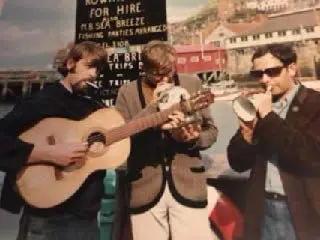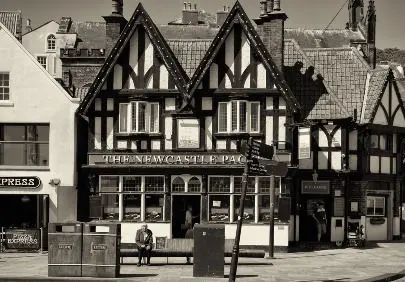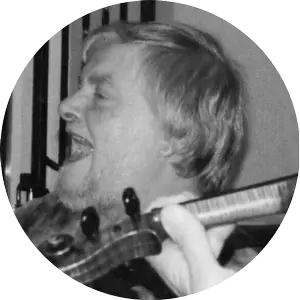
Jug and Bottle Washers Jug Band, Jon Rennard, guitar & kazoo , Mark Peers on jug, and Johnny Wall playing funnel at Whitby Folk Festival 1965
I was already familiar with the already blossoming folk song movement, already owning records by Bob Dylan, Peter, Paul and Mary and the Clancy Brothers so I decided to check out the local Leeds Folk Scene.
The only folk club in I found out about was at the Union Tavern on Meadow Lane on a Monday Night, and I decided to pay it a visit.
On my first visit there I made friends with the resident singers. I didn’t sing on the first night, but promised to sing the following week.
A right hotch-potch of music was performed on the night, blues, Irish and English traditional folk, jazz, and jug band music.
Included among the residents were Brian Senior, Bob Spray, Bernard Fawcett and the Jug and Bottle Washers Jug Band - Johnny Wall, Jim and Mark Peers and Jon Rennard.
During the evening I picked up a flyer advertising that Brian Senior and Keith Marsden were running a folk club, at the Grove Inn, Back Row, Holbeck on Friday nights.
Many of the Union Tavern residents went on to open their own Folk Clubs. Johnny Wall, The Memphis on Thursday at the Coach and Horses on Beeston Road; John Rennard, The Peel Hotel, Boar Lane on Tuesdays; Bob Spray at the Adelphi on Leeds Bridge on Saturday Nights, and I attended every opening night.


